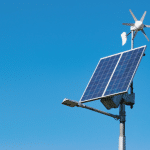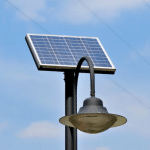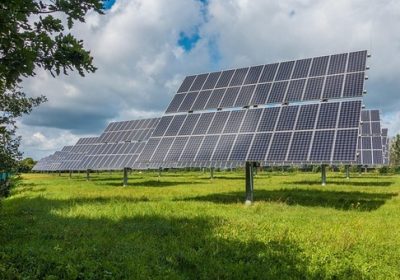Illuminating the Night: A Guide to Maintaining and Troubleshooting Commercial Solar Street Lights in Australia
Have you ever wondered how the luminous glow of commercial solar street lights is maintained night after night? In the vast and varied landscape of Australia, keeping these lights shining brightly requires regular maintenance and adept troubleshooting. This guide dives deep into the essential maintenance tasks and troubleshooting techniques that ensure the optimal performance of commercial solar street lights under Australian conditions.
Understanding Australian Conditions
Climate and Environmental Impact
Australia’s climate ranges from the tropical north to the temperate south, with environmental conditions that can challenge the integrity of solar lighting systems. How does the extreme heat, pervasive dust, and high humidity affect these systems? Understanding these factors is crucial for tailoring maintenance strategies that can withstand Australia’s harsh environment.
Routine Maintenance Of Solar Street Lights

Keeping Solar Panels Clean
Did you know that a thin layer of dust on your solar panels can significantly reduce their efficiency? Regular cleaning of solar panels is essential to remove obstructions that block sunlight, especially in dusty or sandy areas.
Battery and Connection Care
What happens if your battery connections corrode? Checking and cleaning battery connections and terminals prevent power losses and extend the battery’s life. Ensuring connections are tight and free from corrosion is a simple yet effective way to boost system reliability.
LED Light Inspections
Why is it important to regularly inspect your LED lights? Checking for any signs of damage or malfunction in the LED fixtures helps in early identification of issues that might lead to more significant problems down the line.
Battery Maintenance Of Solar Street Lights
Monitoring and Replacement
How do you know when it’s time to replace a battery? Monitoring battery performance and capacity is crucial as it degrades over time. Replacement of batteries at the end of their lifespan ensures continuous and effective lighting.
Safe Disposal of Old Batteries
What should you do with old solar batteries? Proper disposal and recycling of spent batteries are vital for environmental safety and compliance with local regulations.
Troubleshooting Common Issues Of Solar Street Lights
Dimming or Flickering Lights
Have you noticed your solar street lights flickering? This could be due to loose connections or faulty components. A thorough check can help pinpoint and resolve such issues.
Battery Not Charging
What if the battery stops charging? Inspecting the solar panels for any damage or obstructions that block sunlight is crucial. Sometimes, simple cleaning can restore full functionality.
Controller Troubleshooting
What to do when you suspect a controller problem? Resetting the controller and checking its settings can often resolve issues related to light performance and charging.
Dealing with Extreme Weather Events re Solar Street Lights
Preparing for Natural Disasters
How do you prepare solar street lights for bushfires, floods, or cyclones? Implementing emergency protocols and protective measures can minimize damage and ensure that lighting is maintained during extreme weather events.
Maintenance Best Practices
Regular Inspections and Record Keeping
Why should you keep detailed records of maintenance? Creating a regular maintenance schedule and checklist ensures all aspects of the system are routinely inspected and serviced. Keeping detailed records helps in tracking performance trends and can guide future maintenance efforts.
Outsourcing Maintenance Services for Solar Street Lights

Choosing a Service Provider
When should you consider outsourcing maintenance? Outsourcing to professional service providers can bring expertise, convenience, and potentially better cost-effectiveness to the maintenance of solar street lighting systems.
Advantages of Professional Maintenance
What are the benefits of professional maintenance services? Expert maintenance teams can often diagnose and resolve complex issues more quickly and efficiently, reducing downtime and extending the life of the lighting system.
Compliance and Regulations Of Solar Street Lights
Adhering to Standards
Why is compliance with Australian standards so important? Understanding and adhering to the regulations and standards for solar street lighting ensures that installations are safe and perform as expected, which is critical for both operational reliability and legal compliance.
Regular maintenance and skilled troubleshooting are paramount in harnessing the full potential of commercial solar street lights in Australia. By embracing proactive maintenance strategies and staying informed about the latest in solar technology and standards, stakeholders can ensure these lights continue to function effectively, providing safe, reliable, and environmentally friendly lighting solutions.
FAQs:
- How often should solar panels be cleaned in dusty regions?
- In particularly dusty areas, solar panels should be cleaned at least once every month to maintain optimal performance.
- What are the signs that a solar street light battery needs replacement?
- Signs include diminished lighting power, shorter illumination periods, and increased charging times.
- Can solar street lights withstand the impact of cyclones?
- Solar street lights designed for cyclone-prone areas are built to withstand high winds and heavy rains, but specific installations may require additional reinforcement.
- What is the typical lifespan of LED lights in solar street lamps?
- LED lights in solar street lamps typically last for about 50,000 hours of use, which translates to several years under normal conditions.
- Are there any specific Australian standards that guide the installation of solar street lights?
- Yes, several Australian standards apply, including those for electrical safety and outdoor lighting performance, which ensure that installations are both safe and effective.









